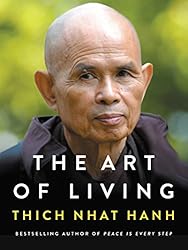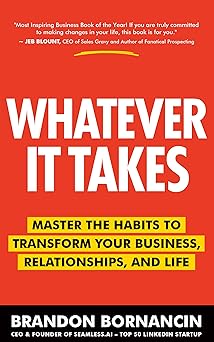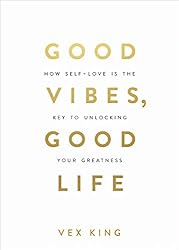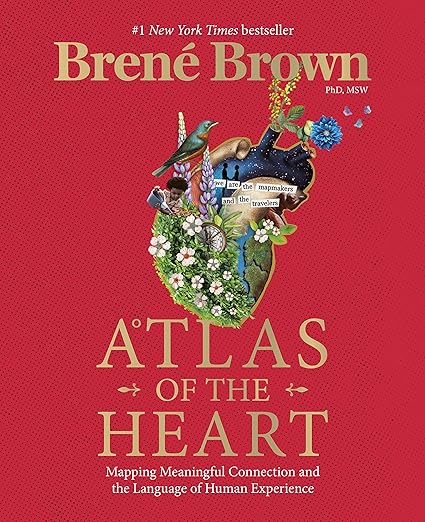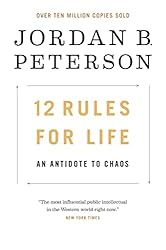Disclaimer: As an Amazon Associate I earn from qualifying purchases.
I dedicate this blog to providing information, insights, and instructions for improving your life. Whether you're new to self development or have been following the path for some time now, this blog has a book for you.
What is self development?
Self development is growing your own skills, knowledge, and talents. We can do it in a variety of ways - through reading books, attending seminars, taking online courses, or practicing regularly.
The best way to find what works best for you is to experiment and find what gets you the results you're looking for. Keep in mind that self development is a lifelong journey, and there is always something to be learned!
The different levels of self development
Self development is a journey that starts with self-awareness and ends with personal fulfilment. We can describe it in various ways–from self-improvement to personal growth. However, the different levels of self development have their own benefits and drawbacks.
If you're not sure where to start, try starting with the least intense level and work your way up as you feel comfortable. Remember that the key is to find what works best for you and to stick with it–even when it gets tough. With self development, you'll be able to achieve your goals and reach your full potential!
What are the benefits of self development?
Self development is developing and improving your personal abilities and skills. It can help you relieve stress, grow as a person, and achieve your goals faster. There are many self-development programs out there, but the best way to find the right one for you is to work today!
Once you work on self-development, you'll soon realize that it has many benefits that you never expected. You'll be able to learn new things quickly and improve your skills significantly.
Plus, self-development is a great way to connect with people from all over the world, and develop strong social skills. So what are you waiting for? Start work on your self-development programs today!
How can you implement self development techniques in your life?
Self development is all about growing and learning to become the best version of yourself. There are many ways to achieve this, from reading books to taking courses online.
Ultimately, it is up to you how you want to develop yourself - do what makes you happy and fulfil your goals. Whether you are looking for a way to improve your personal relationships, increase your productivity at work, or simply feel more fulfilled in your life, self-development can help you achieve these goals.
So don't wait any longer - start implementing self development techniques today and see the incredible results for yourself!
How does self development work?
Self development is a process done on your own or with the help of a coach or tutor. The benefits of self development depend on what you choose to focus on, but they are always positive.
Some benefits you may experience from self-help books include personal growth, career development, better self-esteem, and increased self-awareness.
Self development is a journey that leads to continuous personal growth and learning. It is an essential part of life, and it's important to start it now so that you can enjoy all the benefits of the future.
The 27 Best Self Development Books for Right Now
The Best Self development books can be a great way to improve your life in several ways. They can help you grow and learn in the areas of personal growth, happiness, and stress relief. To decide of which self-development books to read easier, the 27 best self-development books for right now have curated for you.
These self-help books are to provide you with the best advice and guidance on how to improve your life. So, whether you're looking for self-help or want to read something that will make you laugh and cry, these books are for you!
1. The Power of Now by Eckhart Tolle - Best for spiritual awakening
Eckhart Tolle's book "A Guide to the Now" talks about our true essence. It is that which exists beyond the mind. It transcends time and space. Meditation[1] is key to accessing the Now.
What are the key takeaways of the book?
In order for us to live in the now, we must release our analytical mind. This analytical mind causes most of our suffering. The analytical mind is constantly thinking about the past or the future with the constant need for more. We need to detach from this analytical mind. We attain this detachment through practicing mindfulness[2].
2. The Art of Living by Thich Nhat Hanh
Thich Nhat Hanh offers profound meditations that expand our view of existence, our connections, and our interconnectivity with the surroundings. Thich Nhat Hanh discusses how these seven meditations may free us to live a joyful, calm, and active life, and cope with aging and death with curiosity and pleasure while avoiding dread by drawing on personal experiences.
Key takeaway of the book
The Art of Living provides a spiritual dimension to our lives, combining the essence of the Buddha's teachings with Thich Nhat Hanh's heartfelt, timeless, and clarifying prose. This is not a quest for everlasting life or to live in a fantasy realm beyond reality.
This way, we'll be able to see where we've come from and where we're going. So that we may live fully in each present moment of our existence, it will also stimulate joy, comprehension, and love.
3. The Four Agreements by Don Miguel Ruiz
The Four Agreements are based on ancient Toltec wisdom and provide a powerful code of conduct that may quickly change our lives in a new direction of freedom, authentic joy, and love.
The knowledge of the ancient Toltecs has been the focus of Don Miguel Ruiz's life. He has guided others toward personal freedom for over two decades. Through excursions to holy sites across the globe, he continues to blend his distinct combination of ancient wisdom and current-day awareness.
What is the key message of The Four Agreements?
"The Toltec Way offers us the opportunity to put an end to our suffering and inner conflicts. By applying The Four Agreements, we can become a source of joy in the world."
What are the four agreements in The Four Agreements?
- Be impeccable with your word–Speak only truth
- Take nothing personally–Nothing you say is a criticism of me
- Don’t make assumptions about people -They are not better than you, nor are they worse than you
- Always do your best–Your effort will serve as bright proof that there is an intelligent and caring Creator who cares for each of us.
What are some benefits of practicing each agreement in The Four Agreements?
- We can see everything from a different perspective
- We could avoid many conflicts in life by knowing how we react without our thoughts getting involved
- You will hurt no one’s feelings anymore with your words or actions when you practice the fourth agreement and always do your best.
4.Whatever It Takes by Brandon Bornancin - Best for Millenials
Brandon Bornancin was a college grad who had no money. He created an epic flop enterprise. He also created two billion-dollar businesses, the second of which was dubbed "LinkedIn's top 50 startups," before he was 30 years old.
How did he do it? By any means necessary.
You'll learn the winning beliefs and life-transforming habits required to achieve anything you desire in business and in life with this no-nonsense guide to success. You'll learn the techniques of exceptionally successful individuals, including how they think, what they say, and what they do to make their ambitions a reality.
What are the key takeaways of the book?
- Learn how to think like a winner
- Find success through personal discipline and hard work
- Create habits that will help you achieve your goals
5. Atomic Habits by James Clear - Best for changing habits
Uniting the latest breakthroughs from neuroscience with the most inspiring ideas from philosophy, psychology, and behavior change, Atomic Habits presents an easy-to-understand guide for creating habits that stick and eliminating those that don't.
One of the greatest hurdles in developing good habits, and breaking bad ones, is building a welcoming environment for change in your life. The self-control strategies in this book will help you build new habits, break old ones, and forge lasting behavioral change.
What are the key takeaways of the book?
- Habits are more than just doing things, they're also about making them consistent
- You can't change what you don't acknowledge
- It's not about willpower, it's about understanding the power of habits and how to use it to your advantage
6. The One Thing: The Surprisingly Simple Truth About Extraordinary RESULTS by Gary Keller and Jay Papasan - Best for goal setting
People are using this simple, powerful concept to focus on what matters most in their personal and work lives. Companies are helping their employees be more productive with study groups, training, and coaching. Sales teams are boosting sales. Churches are conducting classes and recommending for their members.
What are the key takeaways from the book?
- The One Thing is the most important thing
- Change one thing and everything else changes automatically
- You can't do it all. Delegate and focus on what you're good at
- Make a commitment to yourself and then keep it
- Get clear about your goal, set measurable milestones along the way, celebrate progress (even if small), and don't give up
7. How To Win Friends And Influence People By Dale Carnegie
"To be interesting, be interested." - Dale Carnegie
This enlightening self-book offers a detail study of how a person can be interesting. The ideas presented here will help one become more personable and influential.
What are the key takeaways of the book?
- Don't Criticize.
- Engage In The Other Person's Interests.
- Talk In Terms of The Other People's Interest.
- Remember Names.
- Become Genuinely Interested In Other People.
- Avoid Arguments.
8. You are a Badass By Jen Sincero
You Are a Badass, compels with humor, inspiration, and advice that will teach you how to do things the right way.
Each bite-sized chapter contains stories, sage advice, simple exercises, and swear word optional, all of which are helpful in helping you become a more successful individual.
Whether you're studying for an exam or wanting to get ahead at work, these tips will have you on your way to being a badass for sure!
What are the key takeaways of the book?
- Learn how to become fearless and self-assured
- Stop apologizing for who you are
- Build better habits and break bad ones
- Embrace change, even when it's scary
9."The Subtle Art of Not Giving a F*ck" By Mark Manson
A Counterintuitive Approach to Living a Good Life" (first released in 2016), expands on these ideas and teaches readers how to live their lives without giving a f*ck about what other people think or say.
This allows you to focus on what matters most, your own happiness, which ultimately makes you happier overall.
What are the key takeaways from the book?
- Not caring isn't the same as being totally indifferent.
- To stop caring about trivialities, you need to care about something more important.
- Consciously or unconsciously, you are constantly choosing what to care or not care about.
10. Blink: The Power of Thinking Without Thinking By Malcolm Gladwell
Blink is a book about choices that appear to be solved in an instant—in the blink of an eye—but are actually much more difficult than they seem. Why are some people's good decision-makers, while others are poor?
What are the key takeaways of the book?
- We make snap decisions all the time, based on a small amount of information ( such as a first impression or an instinctive feeling), which Gladwell refers to as "thin slicing."
- We mistrust these decisions. However, Gladwell argues that we're often wrong, and this can shortchange our lives in innumerable ways. We're rarely in the moment, even when we should be.
You may also like: Can Personal Development Book Inspire Greatness?
11. Thinking, Fast and Slow By Daniel Kahneman
Thinking Fast and Slow is a book of prose written by Nobel Laureate David Kahneman about how our thinking broken into two systems: one fast and one slow.
What are the key takeaways from the book?
- The fast system is intuitive and emotional, while the slow system is more logical and analytical.
- Personal experience biases thinking in the fast system and can be unreliable.
- Thinking in the slow system is more aim and less influenced by personal factors.
- This book offers insights into how people make poor decisions, why we are difficult to influence, and how self-control works.
In Thinking Fast and Slow, Kahneman explains how these two systems affect our judgment, making us more prone to errors in judgment, more subject to biases, and more apt to decide based on emotion rather than reason.
12."The 4-Hour Workweek" by Timothy Ferriss
The 4-Hour Workweek is a book written by Timothy Ferriss. The book, published in 2007, details how he went from a full-time job working 80 hours a week to a part-time job working 4 hours a week.
What are the key takeaways of the book?
- The key to success is to work less and achieve the same or better results.
- By working fewer hours, you can soar to your quality of life.
- You don't need a lot of money or special skills to work this way; all you need is creativity and determination.
13. Quiet: The Power of Introverts in a World That Can't Stop Talking By Susan Cain
This book to highlights the problems of introverts in the society and to explain why introverts are undervalued. She has also written this book to highlight the problems of society and to show how introverts often cannot express themselves and their needs and wants. She has written this book to show the positive side of introverts and to highlight the advantages of being an introvert.
What was the key takeaway of the book?
- Introverts need to value their own strengths rather than conforming to the societal norms.
14. The 7 Habits of Highly Effective People: 30th Anniversary Edition (The Covey Habits Series)
The book should provide a framework for achieving personal and professional excellence, and to encourage readers to act and think in a positive and productive manner. The idea of the book is to help readers learn how to recognize the habits, or habits of highly effective people.
What are the key takeaways of the book?
The habits of highly effective people are:
- Be Proactive: Act first, then react; plan your work and work your plan.
- Put First Things First: The first and the last of a person’s priorities should be self-improvement. "The way to get good things done is to start by getting good things started."
- Think win-win: "It’s good to be self-confident, but self-confidence without self-knowledge is a dangerous thing."
- Seek first to understand, then to be understood: This means you should listen carefully before giving your opinion and people will appreciate the fact that you really heard them.
- Synergize: When people work together, they accomplish more than when they try to accomplish the same task individually.
- Be Proactive: "Never let people know what you are thinking." And “If people cannot hear your ideas, it’s probably because they have to work too hard to listen.”
- Sharpen the Saw: "A good plan violently executed now is better than a perfect plan next week."
15. The 48 Laws of Power by Robert Greene
"The 48 Laws of Power" is a book about the application of power in people's lives. It is about how power and influence apply to both personal and social gain. It is about how to access, use, and exercise power to accomplish goals.
The 48 Laws of Power are not laws per se, but principles and behaviors which are used by those who have power. They are not black and white, but shades of grey that can manipulate others.
What are some of the key takeaways of the book?
- It is essential to know the rules of the game and how to play with them.
- Power comes from knowing your opponents and understanding their motivations.
- Never outshine the master.
- Win through your actions, never through argument.
- When asking for help, appeal to people's self-interest, never to their mercy.
16. Awaken the Giant Within: How to Take Immediate Control of Your Mental, Emotional, Physical and Financial by Tony Robbins
"Awaken the Giant Within" is a self-help book by Tony Robbins. It was first published in 1999 and has since translated into over 30 languages. It discusses how to use personal development techniques, such as visualization, affirmations, and self-talk to change one's life for the better.
This book is popular among people who are looking for personal change, emotional stability, physical health, and financial prosperity.
What are the key takeaways of the book?
- If a person is to change for the better, it is necessary to take conscious control of their mindset and self-talk.
- Learning how to empower people and influence others takes time and practice.
17. Can't Hurt Me: Master Your Mind and Defy the Odds by David Goggins
"Can't Hurt Me" is a self-help book written by David Goggins. The book discusses how to use personal development techniques, such as visualization, affirmations, and self-talk, to improve one's life.
The book is popular among people who are looking for ways to increase their mental well-being, emotional stability, physical health, and financial prosperity.
What are the key takeaways of the book?
- Personal development techniques are effective if used correctly.
- A person's mindset is the key to success.
- It takes time and effort to change one's life for the better.
18. The Alchemist by Paulo Coelho
"The Alchemist" is a self-help book written by Paulo Coelho. The book discusses the journey of Santiago, a young man who sets out to find his fortune.
Along the way, Santiago meets people who help him learn how to use personal development techniques, such as visualization and self-talk, to achieve his goals.
What are the key takeaways of the book?
- The journey of self-improvement is often difficult, but rewarding.
- Follow your heart's desires.
- Although you may fail, learn to see your mistakes as stepping stones towards your success.
- Be present at every moment. You'll see the signs the universe has in store.
19. Principles by Ray Dalio
Dalio discusses what he has learned throughout his extraordinary career in Principles. He claims that rules may simplify life, management, economics, and investing in the same way that computers can.
Dalio lays out the most effective ways for people and organizations to decide, approach challenges, and build strong teams in the book's hundreds of practical lessons, which are built around his cornerstones of "radical truth" and "radical transparency."
What are some of the key takeaways of the book?
- Surround yourself with great people that don't always have your perspective.
- Strong employees are difficult to find. Provide additional incentive that most would offer to keep them at your company.
- Your culture should understand that it's okay to make mistakes but unacceptable not to learn from them.
20. Good Vibes, Good Life: How Self-Love Is the Key to Unlocking Your Greatness By Vex King
Self-love is the key to unlocking your greatness. According to Vex King, author of Good Vibes, Good Life, self-love is the key to transforming negative emotions into positive ones and living a greater life.
Besides being an inspirational message for anyone looking for a change in their life, King's book provides practical advice on how to love yourself and live a better one.
What are some of the key takeaways of the book?
- Self-love is the key to unlocking your greatness.
- Be your best version. You are competing with your version of yesterday.
- Start your day be being grateful for all you have, even if it's not much.
- Your longest relationship is with yourself. Learning how to manage yourself well will transfer into all relationships.
21. Rich Dad Poor Dad: What the Rich Teach Their Kids About Money That the Poor and Middle Class Do Not! By Robert Kiyosaki.
In Rich Dad Poor Dad, Robert Kiyosaki tells the story of his two dads—his real father and his best friend, the man who helped him learn about money and investments.
Both men had different ideas about how to make money and invest it, but what they had in common was their belief in using money as a tool for wealth development.
What are some of the key takeaways of the book?
- Robert explains how your residence may not be an asset on its own, debunking the myth that being born into a wealthy family is all you need to become wealthy.
- He also explains why certain assets are more valuable than others, and why understanding these differences is key to becoming financially independent.
22. Atlas of the Heart: Mapping Meaningful Connection and the Language of Human Experience By Brene Brown
If you're looking for a book that will help you understand and improve your connection to yourself and others, Atlas of the Heart is a great read. Brown covers eighty-seven human emotions, providing science-backed information on what each one means.
She also offers helpful tips for expressing and understanding these feelings in both personal and professional settings. If you're interested in deepening your understanding of emotions, this book is definitely worth adding to your shelf!
What are the key takeaways of the book?
- Brown identifies the five essential elements of emotional intelligence and explains how to cultivate each one. She also provides tips for self-care and self-development, including strategies for managing stress and reducing anxiety.
23. Make your Bed by Admiral William McRaven
Make your bed is one of the simplest things you can do to improve your quality of life. Admiral William H. McRaven, a retired Navy SEAL and author of Make Your Bed, outlines ten basic tasks that will help you transform your life and possibly the world.
What are some key takeaways of the book?
- Making your bed every day can improve your mood and stress levels
- Putting your clothes in the correct drawer can boost self-esteem
- Showering regularly not only hygienically but also mentally and spiritually
24.12 Rules for Life: An Antidote for Chaos By Jordan B. Peterson
Jordan B. Peterson’s new book, 12 Rules for Life, is a must-read for anyone looking to improve their life. The book is based on Peterson’s clinical work and tells young people how to achieve personal betterment through discipline and good habits.
The rules are simple but effective, and can help young people enjoy their lives while also avoiding unnecessary human suffering.
What are some of the key takeaways of the book?
- Stand up straight with your shoulders back.
- Treat Yourself like someone you are responsible for helping.
- Make Friends with people who want the best for you.
25. Limitless: Upgrade Your Brain, Learn Anything Faster, and Unlock Your Exceptional Life By Jim Kwik
Limitless by Jim Kwik is a comprehensive guide that will help you learn anything faster, with greater focus and recall. By following his advice, you'll be on your way to reaching your remarkable goals in life.
What are some of the key takeaways of the book?
- Take the time to learn and understand the basics of any subject
- Master self-discipline and focus
- Develop a personal strategy for studying
- Remember to use effective study strategies, such as breaking down information into manageable chunks
26. Big Magic by Elizabeth Gilbert
Big Magic is a book about discovering, finding, and living a creative life every day. Elizabeth Gilbert shows readers how to live a creative life in whatever form they choose. She is an author, wordsmith, and creativity chaser.
The author makes a point of emphasizing that creative living is not just for artists; it is for everyone, in whatever form of creative activity they may be interested in. It is intended to give motivation and support to readers who are hesitant to embrace creative living or the "Big Magic" day-to-day.
What are the key takeaways of the book?
- Creative people Live in the Now
- You Are a Creative Being, and You Deserve to Know It
- Every Day is an Opportunity for Creative Living
- Create from What You Know
27. Think and Grow Rich By Napoleon Hill
If you're looking to achieve financial stability and a life of happiness, then you should definitely consider Napoleon Hill's book, Think and Grow Rich.
The author lays out a step-by-step plan for achieving success in all areas of your life, including money, relationships, and experiences.
By focusing on what's most important to you and taking action based on your goals, you can reach your full potential!
What are the key takeaways of the book?
- The only thing separating you from the riches you want is your own mind. You can actualize your desires into a monetary gain in the sense that you have control over the information you repeat to yourself, choose, and base decisions on.
Final Thoughts:
Self development is growing and improving your personal abilities in order to achieve your personal goals. It is a lifelong journey you may organize in any way that you choose.
The 27 best self-development books aimed at beginners offer a wealth of knowledge and insights that can help you on your self-development journey.
So, what are you waiting for? Start reading today and see what self-development offers you!
Some links on our blog may be affiliate links, which means we may earn a small commission if you make a purchase through them.
Meditation is a deeply personal practice of mindfulness and focused attention aimed at cultivating an increased awareness of the present moment. It involves intentionally slowing down, silencing the mind's chatter, and creating a tranquil inner space free from the distractions of everyday life. Through consistent practice, meditation can serve as a powerful tool for self-discovery, stress reduction, emotional balance, and personal growth, fostering a sense of inner peace that extends beyond the meditative session into all aspects of life.
Mindfulness is a powerful psychological practice that involves deliberately focusing one's attention on the present moment with no judgmental feelings. It is all about experiencing your present in its truest form, where your mind is free of any disturbance of the past or future while engaging in a profound connection with the present moment.
By giving ourselves the gift of mindfulness, we can develop a greater sense of self-awareness, enabling us to embrace ourselves with no inherited biases or distractions. This practice helps us to nurture a more profound sense of clarity, which extends beyond our mental and emotional well-being, ultimately leading to a meaningful life full of purpose.


